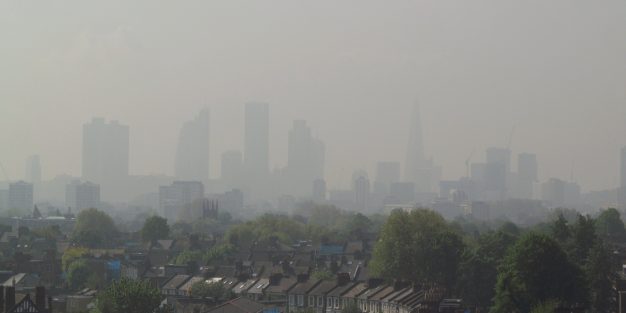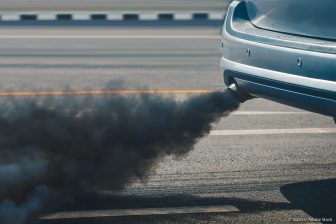
More children to benefit from latest Breathe London air quality scheme
The Mayor of London and the Bloomberg Philanthropies charity have revealed the next round of 30 community groups to receive free air quality sensors awarded as part of the Breathe London Community Programme, whose work is helping children to breathe cleaner air.
The project has already awarded 40 sensors to 40 community groups since 2021, aiming to empower communities across the city living in areas impacted by poor air quality and with limited green spaces to track their exposure to harmful pollution and raise awareness of the importance of clean air.
Poor air quality has been shown to have many health impacts including increased risk of dementia, lung cancer and low birth weight. It can also stunt children’s lungs and worsen chronic illnesses such as asthma.
The project, also supported by researchers at Imperial College London, aims to reach vulnerable groups including low-income populations and Londoners from Black, Asian and Minority Ethnic backgrounds. Nearly 350 locations in London are now covered, with schools among the most prioritised locations, along with hospitals and other health centres.
‘Poor air quality has many health impacts’
Earlier this year, the first batch of sensors were provided to ten community groups across the capital, empowering them to choose where they monitor local air pollution so they can take steps to reduce it. Now, in the second phase of the project, all 30 participating community groups will receive support from Imperial’s Environmental Research Group to help analyse the data, providing them and Londoners with access to real time air quality data, including measurements of small particulate matter (PM2.5) and nitrogen dioxide (NO2), both of which are harmful to health. The groups receiving the free sensors range from parents’ groups and residents’ associations to GP practices and schools.
Sadiq Khan, Mayor of London, said: “Air pollution is a matter of life and death, leading to thousands of Londoners a year dying prematurely and developing life-changing illnesses, such as cancer, lung disease, dementia and asthma. And it’s especially dangerous for children due to the long-lasting impact on their health and life chances, with children in our city growing up with stunted lungs.
I have made clear my determination to clean up London’s filthy air, which is why I recently announced the expansion of the ULEZ London-wide, so five million more Londoners can breather cleaner air.
Monitoring air pollution is crucial to understanding the risk that toxic air has for us all. The Breathe London Network is playing an important role in empowering communities to measure air pollution in their local areas and campaign for action. That’s why I’m delighted to be working with Bloomberg Philanthropies to provide more free air quality sensors to communities across the capital. Together, we can clean up our city’s air and build a better, greener, healthier London for everyone.”
‘Passionate about improving air quality for children’
Michael R. Bloomberg, UN Special Envoy on Climate Ambition and Solutions and Founder of Bloomberg LP and Bloomberg Philanthropies, said: “Everyone deserves to breathe clean air, and these new sensors will empower communities to fight pollution by giving them the real-time data they need to do it. The communities that have suffered the most from dirty air will see the biggest benefits, and we’re glad to support the mayor’s efforts to continue improving air quality all across London.”
Louise, from London Early Years Foundation Brixton, one of the groups selected for this round, said: “We are delighted to be part of Breathe London’s initiative. We are passionate about improving air quality for children and excited that we can do this together with our local nursery, situated in the heart of Brixton. We hope this will also contribute to the Lambeth Air Quality Action Plan, supporting their push for cleaner air for residents.”
The Breathe London Network is supported by the Mayor of London and Bloomberg Philanthropies and is managed by the Environmental Research Group at Imperial College London.
Click here for more information about the project.




